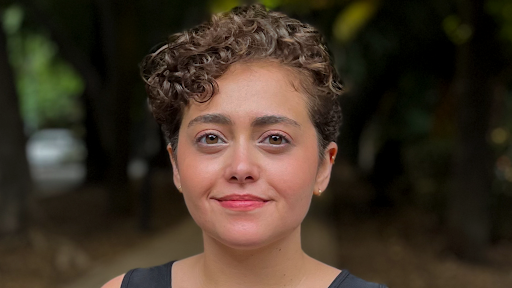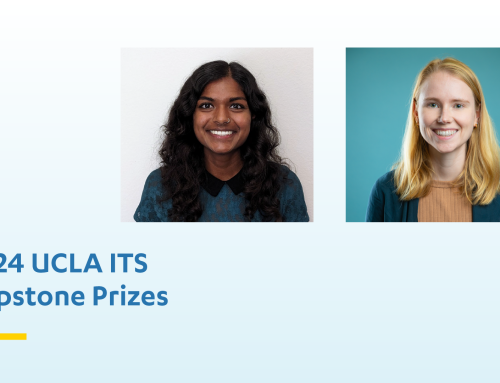Alejandra Rios Gutierrez’s work in comparative urban planning was shaped by her upbringing and experiences in both Mexico and the U.S.
Her mother navigated the bus system in Guadalajara with Rios and her two siblings, and they also had extended family to rely on if needed.
After moving to the U.S., they were suddenly dependent on her father’s driving to get around the suburbs of Illinois.
While it took years to understand the influence of these starkly different transportation experiences, Rios now attributes them to her interests in mobility justice and transit access.
She began to put the pieces together during college at St. Louis University, where she explored topics in economic development and urban planning. While living in St. Louis, Missouri, Rios used public transit any time she left campus. She saw firsthand the disparities in transportation access and quality, noting, in particular, the effects of the city’s historical racial segregation on the locations chosen for the MetroLink light rail system and the policing she observed in transit environments.
After graduating, she moved to Mexico City as part of the U.S. Fulbright Program and stayed there after the program ended to work for a micromobility company. While being introduced to the professional side of transportation planning, she was again influenced by her personal experiences and observations.
“I would feel nauseous whenever I was sitting in traffic because of all the air pollution around me. That got me thinking more about air quality and how it relates to health outcomes and safety,” Rios said.
With all of these revelations in mind, she eventually decided to pursue dual master’s degrees in urban & regional planning and Latin American studies at UCLA, hoping to explore multiple global perspectives on transportation planning.
Her work since then has earned her the title of 2023 master’s student of the year from the Pacific Southwest Region University Transportation Center, a network of 10 universities in California, Nevada, Arizona, and Hawaii. This award recognizes exceptional students for their research and academic performance.
Rios was nominated for the award by Adonia Lugo, equity research manager at the UCLA Institute of Transportation Studies.
“I have been continually impressed by Alejandra’s dedication to documenting marginalized communities’ transportation challenges and her enthusiasm for including community groups in her research design,” Lugo said. “Alejandra is helping to define how urban planners can incorporate community engagement in rigorous work.”
During her time at UCLA, Rios has received numerous accolades, including awards, scholarships and fellowships like the prestigious Dwight David Eisenhower Fellowship from USDOT.
“I’ve had a lot of fun working with different researchers at ITS. I’m happy I got to learn from such smart people and I’m grateful for all of their support, especially Adonia, Tierra [Bills], and Tam Guy, a doctoral student who has done great research that aligns with my thesis work but from the U.S. perspective,” Rios said.
Along with contributing to multiple research projects at the UCLA Institute of Transportation Studies and Lewis Center for Regional Policy Studies spanning environmental impacts, community engagement, project evaluation, and survey methodology, Rios has also seized opportunities to gain professional experience in the field during her graduate studies.
As an intern for the Institute for Transportation and Development Policy in Mexico City last summer, she observed how differently government agencies operate in Mexico compared to the U.S. in implementing transportation programs. She worked on multiple projects, including an audit of two bus rapid transit lines to uncover characteristics (e.g., crowding, headways, traffic signal timing, the size of the gap between the platform and bus) that were best suited for firsthand observation.
Now, with only a few months left of both of her master’s programs, Rios is simultaneously working on an applied planning research project and a Latin American studies thesis.
To fulfill the requirements of her urban planning degree, she is gathering stories from residents of the San Fernando Valley who endure extreme commutes (usually defined as longer than 90 minutes one-way) and non-commute trips. She will look into how extreme travel affects quality of life and the ability to complete other tasks and activities.
Her thesis, on the other hand, is focused on perceptions and experiences of safety for queer transit riders in Mexico City. Rios is relying heavily on interviews for both projects to gain a nuanced understanding of the issues from those directly experiencing them.
After completing her degrees, Rios plans to stay in Los Angeles and strengthen the sense of community she has built here as well as her growing network of urban and transportation planning professionals. She is hopeful that in the future she will continue to work toward putting mobility justice principles into practice.





